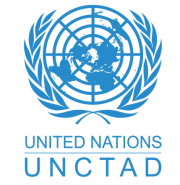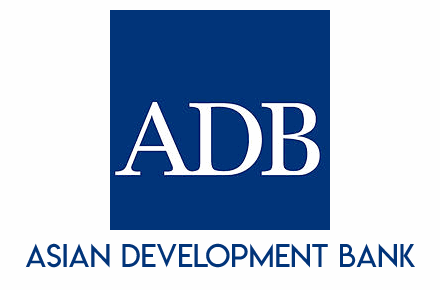Ongoing Modernization Efforts
Since 2017, the Customs Authority has undergone major structural and fiscal reforms to modernize and professionalize the way that we work. This includes:
- Updating the laws that govern Customs Activities
- Embedding new IT systems into everyday work activities to modernize and streamline procedures
- Reduce administrative burdens by automating revenue collection and goods processing procedures; and
- Modernizing and professionalizing the skills of our workforce.
Although good progress has been made, we recognize that there is still more work to do, including:
1. Adequate Revenue Collection
Complexities in collecting tax fairly and transparently remains a challenge for Customs. Tax is an important source of revenue for the State and provides the Government with funding for public investments, such as improving roads, modernizing schools and developing stronger health care systems. We are determined to improve the way we collect tax so that business, traders and the public of Timor-Leste can receive the adequate resources and services needed to build a strong and prosperous nation.
2. Securing the Nations Border
The second challenge face is to protect Timor-Leste borders from illegal and harmful goods ensuring legal goods meet national standards across food safety, agriculture chemicals (including pesticides and fertilizers), medicines and livestock. We have applied these standards to protect Timorese flora and faun and the people of Timor-Leste. To secure the nations border, we will need to continue to work closely with other government agencies and the public to identify illegal goods entering the country whilst ensuring those that are legal, do not harm our nation.
3. Economic Growth
Contributing to economic growth and diversification requires close collaboration and partnership with stakeholders, so that innovative solutions and opportunities can be identified. The trade industry, most particularly, play a critical role in the economic growth of Timor-Leste, and requires Customs to operate efficiently to reduce costs, risks and ensure a fair playing field. We recognize that efforts focused on industry cooperation can contribute to economic development and boost Timor-Leste position as an active and valued trading partner, globally.
4. Managing the movement of people and goods across borders
Whether for tourism, for employment or for business. When people enter Timor-Leste, it is the role of Customs to ensure these people are aware of the rules for importing goods into country. Customs is committed to improving the way it monitors and manages the flow of people and goods.
International Cooperation and Development
We work in close cooperation and partnership with a host of international agencies involved in the modernization process of trade. We have gained extensive knowledge and technical assistance from the following donors:
United States Agency for International Development (USAID)
The purpose of the United States Agency for International Development (USAID) funded Trade Governance Activity is to support the Government of Timor-Leste to institutionalize a well-governed and modern trade system that is professional, transparent, accountable, efficient, effective, responsive to Timorese, and compliant with international standards and obligations. This activity, which commenced in April 2022 and will operate until August 2025, will help the Government of Timor-Leste strengthen governance of their trade systems including efficient and effective use of resources; and establish, deploy, and manage a fit-for-purpose structure that gives the traders and private sector ‘voice’ to ensure the government is transparent and answerable to the public. Trade facilitation practices including customs operations will be modernized to ensure compliance with international norms and best practices, legal and regulatory environment, and further enhance institutional and human capacity. Once institutionalized, it is expected that this trade system will boost trade and economic growth, increase government revenue, increase regional and international integration, enhance sustainability, strengthen good governance and increase capacity for self-reliance.
United Nations Conference on Trade and Development (UNCTAD)
The United Nations Conference on Trade and Development (UNCTAD) was established in 1964 as a permanent intergovernmental body. In 2017, the Government, via the Council of Ministers, passed a resolution No. 14/ 2017 to establish the National Single Window through the ASYCUDA World system which has been used by Customs Authority since 2018. UNCTAD provides Customs with the skills to ensure greater economic integration, which includes:
- Comprehended options to address macro-level development challenges.
- Achieve beneficial integration into the international trading system.
- Increase access to digital technologies which ensure local procedures align with international practices such as ASYCUDA.
- Speed up the flow of goods across borders.
- Curb regulations that stifle competition.

Asian Development Bank (ADB)
The Asian Development Bank (ABD) country partnership for Timor-Leste focuses on removing infrastructure constraints as well as in human capital. ADB has provided numerous publications and reports, which have helped policymakers formulate better solutions to some of Timor-Leste major challenges.
Since 1999, ADB has committed loans, grants, and technical assistance worth $434.21 million for Timor-Leste. ADB’s recent assistance to Timor-Leste has concentrated on improving transport connectivity to reduce inequalities, upgrading water supply and sanitation to deliver better health outcomes, refining education and training to address skills shortages, investing in agricultural value chains to boost rural prosperity, and expanding financial services to stimulate inclusive growth. ADB has helped Timor-Leste rehabilitate or upgrade 126 kilometers of national roads, and a further 296 kilometers of district and national roads will be upgraded by 2022.

Deutsche Gesellschaft fůr Internationale Zusammenarbeit (GIZ)
The Deutsche Gesellschaft fůr Internationale Zusammenarbeit (GIZ) funded Advice and Training to the Maritime Related Industries of Timor-Leste (ATMI-TLS II) project aims to strengthen institutional, and personnel capacities of maritime management staff and vocational training institutions connected to the Timorese maritime sector in accordance with international standards. The Advice and Training to the Maritime Related Industries project, aims to address the strengthening of the new maritime administration in the country and the improvement of procedures in the maritime sector, which should be in accordance with international standards. Maritime transport is extremely important for both economic development in Timor-Leste and for integration of remote areas into the country. Expanding the transport infrastructure is essential for further economic growth and increased employment in tourism, fishing, and logistics.
